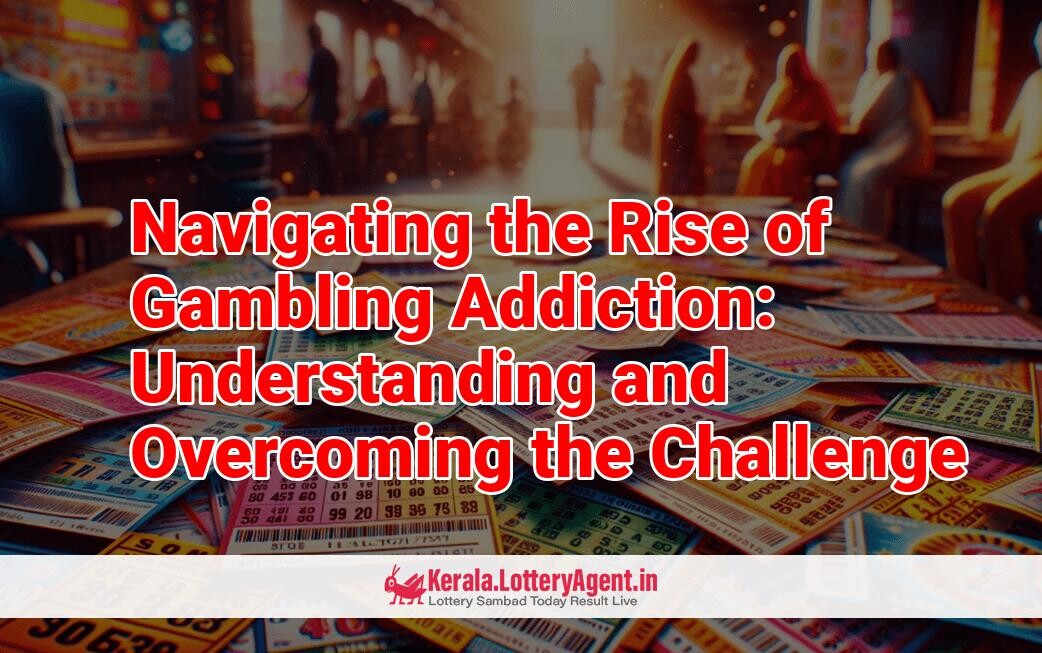
Psychiatrists today are raising alarms about the surge in gambling addiction—deemed a significant brain disorder—marked by habitual engagement in gambling activities despite the severe consequences it brings to health and mental well-being.
Recent years have seen gambling addiction ascend to one of the most prevalent forms of addiction, propelled by the increasing accessibility to a myriad of land-based and online facilities for lottery, betting, and casino games. While these offerings provide a recreational escape, the risks of addiction loom large and demand informed caution.
The COVID-19 pandemic has exacerbated the predicament with soaring numbers of gambling and gaming addictions reported worldwide. Experts point to the increased isolation, stress levels, and financial pressures during the ensuing lockdowns as a fertile ground for the rapid descent into pathological gambling behaviors.
Signifying a mental disorder where control over gambling is lost, and its negative impacts are disregarded, it parallels the compulsive drive found in substance abusers. In the face of grim statistics, like the 600,000 afflicted individuals in the UK alone, it becomes ever more urgent to address this issue with prompt recognition and decisive action.
The complexity of gambling addiction is further compounded by its various typologies, each presenting unique symptomatic patterns. Yet the underlying imperative remains clear across all: early detection and intervention are critical.
Families and friends often experience the ramifications of a loved one’s addiction first-hand, with damaged relationships and financial strains emerging as common consequences. Adding to the concern is the estimation by experts that 2-3% of all players may suffer from a form of gambling addiction, many of whom might seek self-help remedies rather than formal treatment.
The insidious nature of this addiction manifests in multiple ways: from the inability to focus on day-to-day tasks, missing significant life events, and the potential for concurrent mental health issues. The social and economic aspects of an individual’s life can be severely disrupted, and behaviors such as lying, stealing, or selling personal possessions to finance gambling are distressing markers of a deepening crisis.
Early warning signs of problematic gambling can range from persistent thoughts about gambling to an increasing need for money to achieve the desired thrill, indicating a developing “gambling tolerance.” The progression from using disposable income for bets to dipping into savings or earnings earmarked for essential needs is a dangerous trajectory that can lead to significant life disruptions.
When faced with emotional turmoil or life challenges, some individuals may turn to gambling as a means of escape, thereby increasing their vulnerability to addiction. Extended periods of gameplay that trigger withdrawal-like symptoms when ceased accentuate the disorder’s gravity.
To counteract gambling addiction, a nuanced but assertive approach is required. Family and friends play a pivotal role in supporting their loved ones through acknowledgment and guided assistance. Promoting treatment options, including group support and professional counseling, forms part of a comprehensive recovery strategy.
Experts distinguish the evolution of gambling addiction into four stages, each demanding tailored interventions and unwavering support. Acknowledging that certain individuals and groups—such as the young, elderly, or those with a family history of addiction—are at an elevated risk can lead to more targeted prevention and remedy methodologies.
Dispelling myths about gambling addiction is also fundamental in the broader understanding and tackling of the issue. A diverse range of people across all demographics can fall prey to addiction, belying assumptions that it is confined to certain socioeconomic or intellectual profiles. Moreover, financial assistance offered to gamblers often serves to perpetuate the problem rather than solving it.
Ultimately, overcoming gambling addiction requires acknowledgment, introspection, and persistent effort. Alongside gamblers anonymous programs and professional therapy, self-care through engaging in alternative activities and social support is essential. Pharmacological intervention may be necessary to mitigate the intense cravings experienced by those severing their ties with gambling.
Experts agitate for an integrative support network to assist both the gambler and those affected by their actions. Setting financial and emotional boundaries is crucial, and seeking collective assistance from various sources can amplify the effectiveness of coping strategies.
Lapses during the recovery journey are to be expected, yet they should be met with resilience and the support of mentors and confidants. Loved ones of gamblers should also not shy away from professional advice in the event of serious concerns, such as suicidal ideation.
In conclusion, as gambling addiction continues to pose a grave challenge to societal well-being, recognizing its signs and mobilizing a robust response are imperative. Emphasizing personal responsibility alongside external support ensures a path toward recovery that holds promise for those embroiled in the throes of this formidable addiction.











